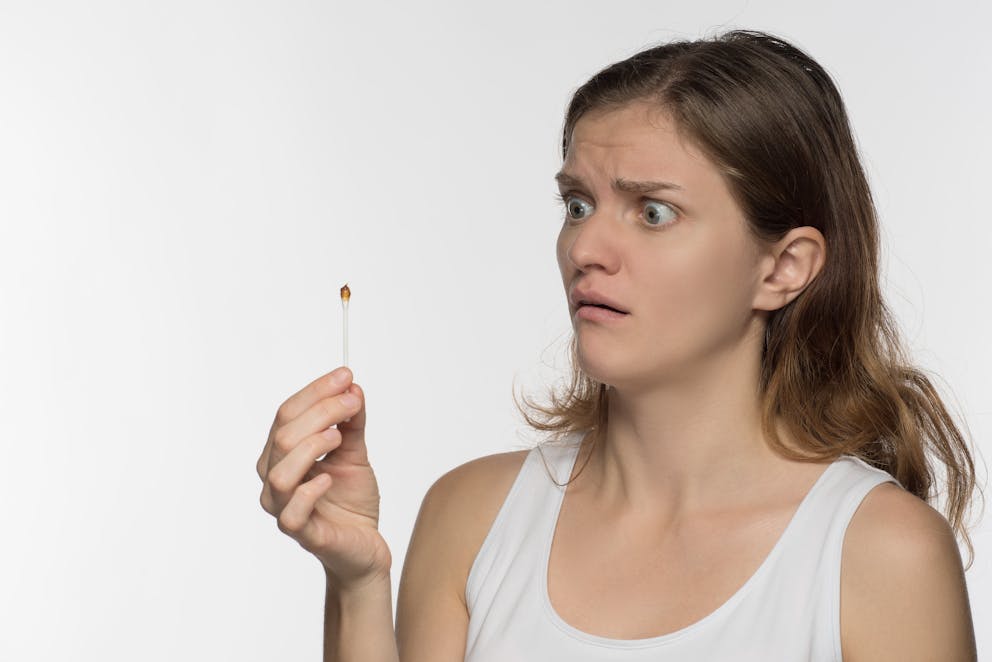How to STOP Tinnitus (Ringing in the Ears) in 30 SECONDS with This Technique – Dr. Berg

25 Top Home Remedies That Really Work
Explore powerful home remedies for common health issues
Discover how to use everyday household ingredients to address minor ailments
Get practical tips for the safe and effective use of home remedies

25 Top Home Remedies That Really Work
Explore powerful home remedies for common health issues
Discover how to use everyday household ingredients to address minor ailments
Get practical tips for the safe and effective use of home remedies

25 Top Home Remedies That Really Work
Explore powerful home remedies for common health issues
Discover how to use everyday household ingredients to address minor ailments
Get practical tips for the safe and effective use of home remedies

25 Top Home Remedies That Really Work
Explore powerful home remedies for common health issues
Discover how to use everyday household ingredients to address minor ailments
Get practical tips for the safe and effective use of home remedies

25 Top Home Remedies That Really Work
Explore powerful home remedies for common health issues
Discover how to use everyday household ingredients to address minor ailments
Get practical tips for the safe and effective use of home remedies

25 Top Home Remedies That Really Work
Explore powerful home remedies for common health issues
Discover how to use everyday household ingredients to address minor ailments
Get practical tips for the safe and effective use of home remedies

25 Top Home Remedies That Really Work
Explore powerful home remedies for common health issues
Discover how to use everyday household ingredients to address minor ailments
Get practical tips for the safe and effective use of home remedies

25 Top Home Remedies That Really Work
Explore powerful home remedies for common health issues
Discover how to use everyday household ingredients to address minor ailments
Get practical tips for the safe and effective use of home remedies

25 Top Home Remedies That Really Work
Explore powerful home remedies for common health issues
Discover how to use everyday household ingredients to address minor ailments
Get practical tips for the safe and effective use of home remedies

How to Read Your Body
Learn to recognize common symptoms and uncover their underlying health issues
Understand the signs of nutrient deficiencies to manage your health
Explore the four metabolic body types and the core factors that influence them
Interpret your body's signals from head to toe to identify potential health concerns

How to Read Your Body
Learn to recognize common symptoms and uncover their underlying health issues
Understand the signs of nutrient deficiencies to manage your health
Explore the four metabolic body types and the core factors that influence them
Interpret your body's signals from head to toe to identify potential health concerns

How to Read Your Body
Learn to recognize common symptoms and uncover their underlying health issues
Understand the signs of nutrient deficiencies to manage your health
Explore the four metabolic body types and the core factors that influence them
Interpret your body's signals from head to toe to identify potential health concerns

How to Read Your Body
Learn to recognize common symptoms and uncover their underlying health issues
Understand the signs of nutrient deficiencies to manage your health
Explore the four metabolic body types and the core factors that influence them
Interpret your body's signals from head to toe to identify potential health concerns

How to Read Your Body
Learn to recognize common symptoms and uncover their underlying health issues
Understand the signs of nutrient deficiencies to manage your health
Explore the four metabolic body types and the core factors that influence them
Interpret your body's signals from head to toe to identify potential health concerns

How to Read Your Body
Learn to recognize common symptoms and uncover their underlying health issues
Understand the signs of nutrient deficiencies to manage your health
Explore the four metabolic body types and the core factors that influence them
Interpret your body's signals from head to toe to identify potential health concerns

How to Read Your Body
Learn to recognize common symptoms and uncover their underlying health issues
Understand the signs of nutrient deficiencies to manage your health
Explore the four metabolic body types and the core factors that influence them
Interpret your body's signals from head to toe to identify potential health concerns

How to Read Your Body
Learn to recognize common symptoms and uncover their underlying health issues
Understand the signs of nutrient deficiencies to manage your health
Explore the four metabolic body types and the core factors that influence them
Interpret your body's signals from head to toe to identify potential health concerns

How to Read Your Body
Learn to recognize common symptoms and uncover their underlying health issues
Understand the signs of nutrient deficiencies to manage your health
Explore the four metabolic body types and the core factors that influence them
Interpret your body's signals from head to toe to identify potential health concerns
Tinnitus can be a troublesome and disabling affliction with diverse origins and consequences on one's daily life.
Learn about tinnitus in greater detail, including its many different potential causes. Also, explore methods of rating it before and after treatment using a simple scale to track progress over time.
Understanding Tinnitus
Tinnitus is ghost noise only audible to the individuals afflicted by it and manifests itself as ringing, buzzing, or hissing sounds.
Causes and Types of Tinnitus
Tinnitus can be triggered by loud noises, aging, head or neck injuries, or certain medications and is classified into two distinct types:
Subjective tinnitus: Usually due to issues with your auditory nerves or pathways leading to your brain.
Objective tinnitus: Often stems from blood vessel problems or muscle contractions near your ears.

Effects on Daily Life
Tinnitus can affect your daily life in several ways:
Sleep disturbances: The constant noise makes falling and staying asleep hard.
Anxiety and stress: The frustration caused by persistent ringing sounds increases anxiety levels and stress over time.
Hearing difficulties: In severe cases, tinnitus can interfere with your ability to hear external sounds and engage in conversations.
Decreased concentration: The constant noise makes it challenging to focus on tasks or activities that require attention.
Get Fast Relief from Tinnitus
This modified tapping technique helps reset the nerve responsible for tinnitus symptoms and offers fast relief.
How to Do It:
Sit in a relaxed position and take several deep inhalations.
Place your fingertips above your ears.
Tap gently with moderate pressure in a left-right-left rhythm for 20 seconds.
Repeat as needed throughout the day.
Rating Your Tinnitus Before and After Treatment
Before using this tapping technique, rate your tinnitus on a scale of 0 (no problem) to 10 (major problem) to track progress over time. Consider loudness, frequency, and interference with daily activities when rating tinnitus symptoms.
Note your ratings regularly to compare values over time and track improvements.
Maintain consistency: Perform the tapping technique simultaneously every day for accurate comparison between sessions.
Avoid external influences: Ensure there aren't other factors like exposure to loud noises recently that could skew outcomes.
Insulin Resistance - A Possible Cause for Persistent Tinnitus
Insulin resistance may be the culprit behind persistent ringing in the ears.
Signs of insulin resistance include fatigue, weight gain, hunger, poor concentration, and frequent urination.
Benfotiamine as Potential Treatment Plan
Research shows that benfotiamine can improve nerve function and reduce oxidative stress caused by high blood sugar levels associated with insulin resistance. This may help alleviate tinnitus symptoms in individuals with blood sugar imbalances and insulin resistance.
If you are concerned about your tinnitus symptoms, it’s crucial to consult a healthcare provider to evaluate your symptoms and establish an appropriate treatment plan.
Earwax and Tinnitus
One surprising way to reduce the severity of your tinnitus is by removing excess earwax.
Some foods exacerbate excess earwax buildup and can cause hearing loss and other issues with the auditory system that may lead to tinnitus.
When too much wax accumulates in the middle or inner ear, it can block sound waves from reaching their destination correctly. This blockage causes sounds to become distorted or muffled, which can contribute to the development of tinnitus.
Additionally, when your brain has difficulty processing incoming sounds due to hearing loss caused by excessive wax buildup, it may create phantom noises like those associated with tinnitus.

How Removing Earwax Can Help Reduce Tinnitus Symptoms
Increase clarity: By removing excess wax from your ears through professional cleaning or home remedies such as mineral oil drops or hydrogen peroxide solution diluted with water, external sounds can reach their intended destination without obstruction, leading to fewer chances of distortion, causing less severe symptoms of ringing/buzzing noise.
Promote healing: If an infection exists within the eardrum (otitis media), removing built-up debris will help promote quicker recovery times while reducing inflammation levels, which may help alleviate tinnitus symptoms.
Remember, while earwax removal can help reduce tinnitus symptoms, it is essential not to overdo it.
Attempting to remove earwax on your own with cotton swabs or hair pins can lead to further complications and worsen tinnitus symptoms. Always consult a medical professional before attempting any treatment at home.
Additional Tips for Managing Tinnitus Symptoms
Avoid loud noises: Protect your ears by avoiding deafening sounds or wearing earplugs when necessary.
Maintain a healthy diet: Eat well-balanced meals with plenty of keto-approved vegetables and healthy fats to improve overall health and ear function. Include antioxidant-filled foods such as kale, avocados, coconut oil, and spinach.
Exercise regularly: Increase blood flow to your ears with at least 150 minutes of moderate-intensity aerobic activity weekly.
Manage stress levels: Reduce stress-related impacts on hearing health with relaxation techniques like deep breathing and exercises.
Conclusion
Got tinnitus? Try tapping the side of your head with your hands over your ears for fast relief.
Keeping ear canals clean, balancing blood sugar levels, and avoiding loud noises are successful strategies for managing tinnitus symptoms.
FAQs
1. How to Get Immediate Relief from Tinnitus
Reduce tinnitus symptoms temporarily by pressing your hands over your ears and rapidly tapping the back of your head for 30 seconds.
2. What's New in Tinnitus Treatment?
Ongoing research focuses on therapies such as tailored neuromodulation, which aims to personalize electrical stimulation based on individual auditory profiles.
Consider consulting with the American Tinnitus Association or a healthcare professional for a personalized treatment plan for severe tinnitus.
More Tinnitus Video: ▶️ https://youtu.be/Cbylubjzhhg
DATA: The name of the person who developed this technique is Dr. Jan Strydom of A2Z of Health.
Previous blog
The 7 Bad Diet Habits THAT WILL RUIN Your DayTags

Popular
08/21/2024
55K views
02/23/2025
46.3K views
11/18/2024
277.5K views
03/18/2024
11/21/2022




